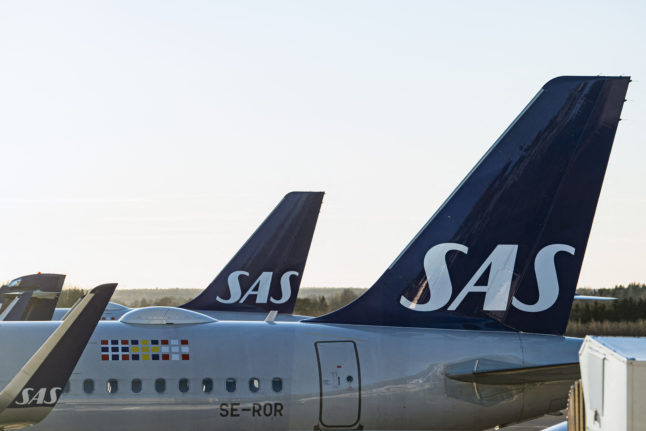Scandinavian airline SAS and pilots’ unions in Norway, Denmark and Sweden have failed to reach an agreement to prevent a strike, meaning 900 pilots will go on strike this week.
“How on earth is a strike in the busiest week of the last two-and-a-half years going to help us find and attract investors,” SAS chief executive Anko van der Werff told reporters, criticising what he called a “strike culture” among pilots.
READ MORE: SAS pilots in Norway, Sweden and Denmark to strike after talks break down
The airline said that up to 30,000 passengers a day could be affected by the strike. Flights with SAS subsidiaries SAS Link, SAS Connect, and Air Baltic CityJet and, XFLY wouldn’t be affected by the strike.
Passengers can rebook equivalent flights for free and are advised to check whether their flight will be affected, SAS said in updated information issued on its website.
“As a precaution SAS offers passengers booked on SAS flights between July 4th – July 9th 2022 the option of rebooking the ticket, free of charge. Passengers can rebook to a SAS flight on another date, within the next 360 days, to the same destination if the same service class as the original ticket is available,” the airline said.
To see if their flight is likely to be affected, passengers are advised to check the status of their flight on the SAS website. Rebookings can be made via the “My Bookings” section.
Passengers who booked their ticket via a travel agent or tour operator should contact them directly, SAS said.
READ ALSO: Airport chaos in Europe: What are your rights if flights are delayed or cancelled?
Rebooking may take longer than usual, especially for passengers contacting the airline over the phone. However, the airline also said that there were waiting times for its chat service too.
“SAS apologizes for the unusually long waiting times right now on chat and phone and are doing everything we can to assist our customers,” it said.
The strike, involving around 1,000 SAS pilots, was announced by unions in the three Nordic countries after the collective bargaining agreement by which the pilots’ salary and working terms are determined expired in April. Pilots are currently working under the terms of the expired deal.
The creation of two SAS subsidiaries, SAS Connect and SAS Link, is reported to be a point of contention in negotiations over a new collective agreement.
Pilots’ unions in all three Scandinavian countries will take part in the strike, should mediation not achieve a result.



 Please whitelist us to continue reading.
Please whitelist us to continue reading.
I have a SAS flight, direct to Toronto. It was set for Friday. It is unlikely to fly, but not yet cancelled. I looked at rebooking for Christmas. The fees and everything to change it were nearly 5000 SEK. I thought okay, that Christmas, its extra… but the same charges were shown from November to March. Then I thought, okay, I’ll move it to next summer. But no, the 360 day limit applies to all flights based on today’s date, not the flight dates… so no go. Now, I am just thoroughly disgusted with BOTH the union and the airline. The claim they make about ‘free rebooking’ is absurd… I didn’t buy a super cheap ticket to start with, and so the extra charges are just another money grab. Oh, and did I mention… I had booked direct flights to/from Toronto. there was not a single direct flight available for rebooking on any date I looked at. the only options were a change of planes in Newark, USA. If I had to change, I would rather do so outside the US. So, zero equivalent flights in terms of convenience, and they want another 5000 SEK for the privilege of being seriously inconvenienced!